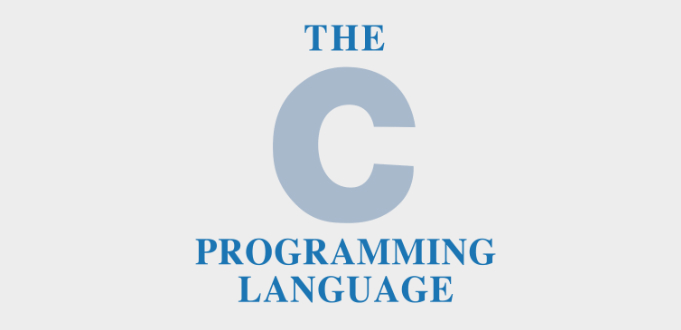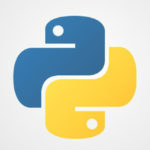What is C?
C is a general-purpose, high-level language that was originally developed by Dennis M. Ritchie to develop the UNIX operating system at Bell Labs. C was originally first implemented on the DEC PDP-11 computer in 1972.
In 1978, Brian Kernighan and Dennis Ritchie produced the first publicly available description of C, now known as the K&R standard.
The UNIX operating system, the C compiler, and essentially all UNIX application programs have been written in C. C has now become a widely used professional language for various reasons −
- Easy to learn
- Structured language
- It produces efficient programs
- It can handle low-level activities
- It can be compiled on a variety of computer platforms
Few other facts about C are:
- C was invented to write an operating system called UNIX.
- C is a successor of B language which was introduced around the early 1970s.
- The language was formalized in 1988 by the American National Standard Institute (ANSI).
- The UNIX OS was totally written in C.
- Today C is the most widely used and popular System Programming Language.
- Most of the state-of-the-art software have been implemented using C.
- Today’s most popular Linux OS and RDBMS MySQL have been written in C.
Source : tutorialpoint.com
Why learn C?
There are an awful lot of programming languages available right now — everything from the extremely high level (such as Visual Basic) to the low level power of assembly, and a good variety of specialized options in between (Perl, Ruby, and Python are good choices for many tasks). Java has also become quite the hot programming language for some tasks, in part because of its large API and in part because the virtual machine provides some elements of security. (Garbage collection is another nice feature and can make programmers much more efficient.)
Nevertheless, there are some good reasons to learn to program in C. First, age has its advantages: C has been around for 30 years, and there is a ton of source code available. This means there’s a lot to learn from, and a lot to use. Moreover, many of the issues with the language have been clearly elucidated — it’s well understood, and you can find a lot of tutorials available. Plus, with C, you get lots of strong opinions mixed with insights that you can understand.
As a result of its age and its use as the language of system programming for Unix, C has become something of the lingua franca of programming. C is a great language for expressing common ideas in programming in a way that most people are comfortable with. Moreover, a lot of the principles used in C — for instance, argc and argv for command line parameters, as well as loop constructs and variable types — will show up in a lot of other languages you learn so you’ll be able to talk to people even if they don’t know C in a way that’s common to both of you.
Third, C is reasonably close to the machine. When you’re working with pointers, bytes, and individual bits, things like optimization techniques start to make a lot more sense. There’s also utility in knowing exactly how something works underneath the hood — this helps a great deal when something you’re trying to do in a higher level language seems way slower than expected, or just doesn’t work at all. You also tend to get a better picture of advanced topics like exactly how networking works. A higher level language will make it a little bit simpler, but it’ll be harder to understand what’s going on, and when things stop working, it’s much better to know exactly what’s going on so you can fix it. Additionally, if you like computer science as a discipline, or just like knowing how things work learning the details of the system is great fun.
In fact, a lot of fun programming is done in C — for instance, system software and data managers such as Berkeley DB. If you want to be able to do more than write a simple web app, C is a great language. If you want to write a great, fast game, C is again a great choice. You can write an entire OS in C. It’ll be much harder to do so in Java, and nearly impossible in a scripting language. And the language, being succinct as C is, will probably make your fun program more elegant looking to boot.
Source : cprogramming.com
What are the best online courses and resources to learn C?
C being a very old and popular language, has lot of resources probably the most including online courses and books. And my suggestion as always would be to go for online courses, specially the ones with active forum and various projects. And buy some decent books for the reference. Books are really important when it comes to C, because its different from scripting language like HTML, CSS, JS, etc or language like Python, etc as it is a complex language and needs good level of theory knowledge as well.
So I would recommend enroll in good courses online and do buy some good books.
Best Online Course I would suggest to learn C are:
- C Programming For Beginners (Udemy)

- C Programming – Complete Tutorial For Beginners (Udemy)

- The Complete C Developer Course – Build 7 Exciting Projects! (Udemy)

- C Essential Training (Lynda)

- C Tutorial for Beginners (Udemy)
- Amazing C language training to try right now
(Udemy)
- Up and Running with C (Lynda)

- C Coder: Lite Edition (Udemy)
- C Programming For Beginners Hands-On! (Udemy)
- Demystifying C Programming Language (Udemy)
Best books to learn C are:
**Clicking on the book will take you to your local Amazon store.
My recommendation for other good resources to learn, practice and keep yourself updated with C are:
- Tutorial Point
- Hacker Rank
- Hacker Earth
- Programiz
- Geeks for Geeks
- WikiBooks
- StackOverflow
- The New Boston
- Youtube (Jonathan Engelsma)























